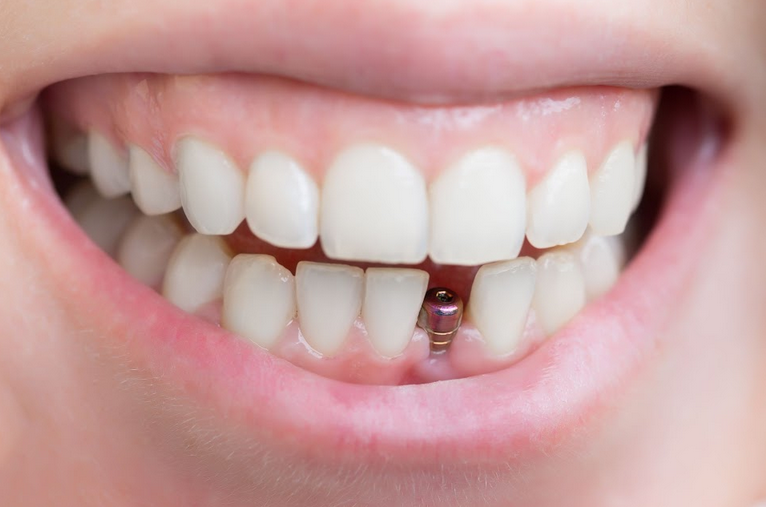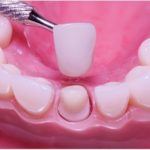Missing teeth isn’t something anyone would want to have. People, both young and old, would love to have full, bright smiles without gaps or any other issues for as long as possible.
Unfortunately, this isn’t always the case with many. Regardless of age and gender, you always risk losing teeth for one reason or another despite doing the best you can to practice good oral hygiene.
It’s a good thing there are several remedies for tooth loss. For example, you can easily fill the gap left by a missing tooth by getting dental implants. All you need is to work closely with a dental specialist to help you choose the ideal treatment for your missing tooth since what works for one person might not work for the other.
As far as dental implants are concerned, they’re among the most common permanent solutions for tooth loss.
Suppose you’re considering this treatment. In that case, continue reading to learn what to expect before, during, and after the procedure.
What To Expect Before Dental Implants Surgery
If you got a recommendation from your dentist to get dental implants, here’s what you should expect during your first visit:
1. A Comprehensive Dental Exam
During your consultation, a specialist in dental implants Mississauga will explain what dental implants are and how they work. They’ll also discuss the advantages and disadvantages associated with having them. Discussing the treatment helps you know what to expect and whether or not you’re an ideal candidate for getting them.
After your dentist has explained everything there is to know, they’ll perform an exhaustive dental examination to determine the state of your teeth, gums, and jawbone. They’ll also refer to your dental and general medical history and perform visual examinations and X-rays.
Your medical history will let the specialist know if you have underlying conditions that might prevent you from having dental implants.
These tests are necessary since the state of your oral health is crucial in determining if this solution works in your case.
Another reason your dentist will perform a thorough examination is to determine if you have bone loss (if yes, to what extent). Based on the results, the specialist can then pick implants that fit you.
If it turns out that implants won’t work for you or only cause serious problems down the line, they can prescribe an alternative treatment.
2. Developing A Treatment Plan
After the examination, your dentist will develop a treatment plan based on your needs. They’ll consider their findings on your dental, gum, and jawbone health to establish your post-surgery care and maintenance. This way, they reduce your risk of developing complications like pain and infection while ensuring the procedure is successful.
Preparing For Dental Implants
The next step is preparing you to receive your Mississauga dental implants.
At this point, the specialist will remove the remaining tooth and perform a bone grafting if necessary.
Bone grafting means extracting some bone from a part of your body and installing it into your jawbone. This procedure is done for individuals with jaws that can’t support dental implants.
If you have to go through extensive bone grafting, you should wait at least four months before receiving dental implants. But if it’s only minor, it can be done alongside the dental implant procedure.
During The Surgery
Here’s what you should expect during the procedure:
1. Sedation
Dental implant surgery is an invasive procedure. That means it can be painful and uncomfortable.
For this reason, specialists sedate their patients using local anesthesia to numb the jaws and reduce discomfort. If local anesthesia is used, you’ll be awake during the entire surgery but won’t feel pain.
In contrast, general anesthesia will put you to sleep during the surgery, requiring rest afterward to ensure recovery.
The latter is obviously the preferred option for people who experience severe dental anxiety or need extensive work.
2. Placing The Implants
The specialist will open your gums during dental implant surgery to expose the bone. They’ll then drill holes into it to install metal posts. The holes go quite deep to provide adequate support for the roots of your new crowns.
After installing the posts, your doctor might provide temporary dentures to close the gaps.
3. Waiting For Bone Growth
After the metal posts are implanted into your jawbone, the osseointegration commences. This refers to the material integrating with the actual bone for proper implantation.
Osseointegration might take a few months to occur. Make sure to follow scheduled appointments to minimize potential issues and ensure the completion of the procedure.
4. Inserting The Abutment
Once the metal posts fully integrate with your jawbone, you’re ready for abutment placement.
The specialist will perform minor surgery with local anesthesia to open your gums and access the posts. Next, they attach the abutment to the posts and close the tissue around it.
The abutment is sometimes installed on the metal posts during the first surgery to eradicate the need for additional sessions. It’s usually the way with minor cases.
5. Healing
Once the gums have healed after the abutment installation, you wait about two weeks before receiving the crowns. You must consume liquid food and fluids during this period to avoid interfering with the healing. Great choices include smoothies, creamy soup, mashed potatoes, and broth.
6. Getting The Crowns
After the gums completely heal, your dentist will design impressions using your mouth and remaining teeth. These will be used to create crowns that look natural in your mouth.
The specialist first checks if your gums have healed enough and can support the crowns. Only then will they help you choose between fixed and removable crowns.
Fixed teeth, as the name implies, are permanently fixed into individual abutments. This means the crowns aren’t removed even during cleaning. On the other hand, removable teeth can be taken out of your mouth during cleaning or when sleeping. They are attached to a metal frame fixed on the abutment.
In some cases, you may get either of these as part of a set.

What Happens After The Procedure?
Whether you had dental implant surgery in stages or at once, you will experience some level of inconvenience and discomfort for a while. The most common issues associated with the procedure include minor bleeding, swelling of the gums, pain in the implant area, and gum bruising.
Fortunately, these symptoms aren’t severe and improve after some time. You may ask your dentist to prescribe pain relievers to reduce discomfort. If pain and bleeding persist, contact them as soon as possible.
Steps For Proper Dental Implant Aftercare
After getting dental implants, you must take some steps to ensure the treatment’s success. Here’s a quick list of some you must keep in mind:
1. Eat Soft Foods
As mentioned, you should consume soft foods during the first few days following dental implant surgery. Solid, hard foods must be avoided at least 24 hours after surgery to prevent shifting the metal posts. You should also avoid sugary foods to prevent plaque buildup.
2. Keep Up Your Oral Hygiene
After the surgery, the need to practice good oral hygiene to prevent infections and other dental issues is greater than ever. Remember to brush at least twice a day and floss after meals. Use a soft-bristled toothbrush to avoid injuring the treatment area.
Your dental hygiene will affect how quickly you heal after the procedure. Pay more attention to it as you wait for the implants to fully integrate.
3. Take Your Prescribed Medicine
Your dentist will prescribe some medication to facilitate healing. These may include pain relievers and antibiotics. Ensure to stick to your dosage and follow your intake schedule as closely as possible. You should also bring up any health conditions or currently taken medication to check if taking the ones prescribed is safe for you.
4. Avoid Smoking And Drinking Alcohol
You should avoid these as much as possible following a dental implant. Doing so can lead to complications and slow the healing process. Smoking, in particular, is known for causing infections after any type of oral surgery. At least hold off until your dentist can say it’s fine.
5. Do Not Ignore Warning Signs
Many patients experience swelling, bruising, and minor bleeding after dental implant surgery. These symptoms are normal and aren’t a cause for alarm unless they persist or worsen.
For example, suppose you experience severe bleeding that doesn’t improve with time. In that case, you should contact your dentist as soon as possible since it might be a sign of a complication. Severe pain could also indicate something wrong and should be addressed immediately.
Know What To Expect
Dental implants remain popular among people wanting to fix gaps left after losing teeth. They provide an opportunity to regain confidence in their looks and go about their day with ease.
This option is safe for individuals with fully developed jawbones. It doesn’t pose many risks besides minor bleeding and swelling, which improve shortly after. Just make sure you provide your dentist with all the necessary details to determine if it’s the right choice for you.
Visit your trusted provider and talk about getting implants for missing teeth today.
Related Posts












